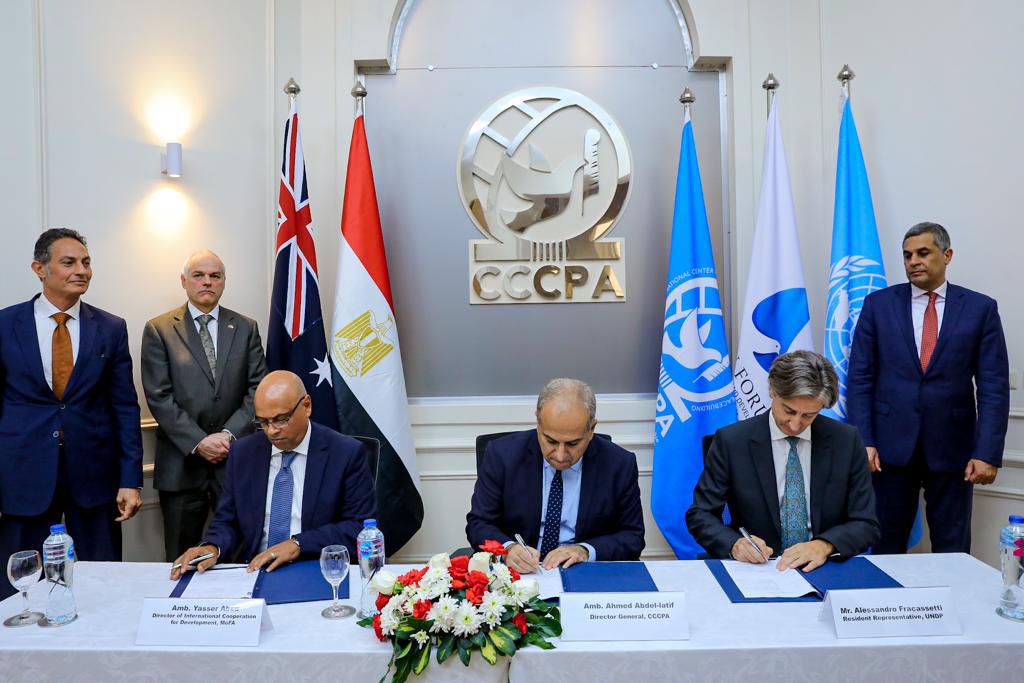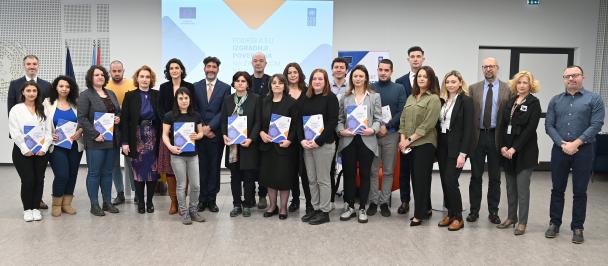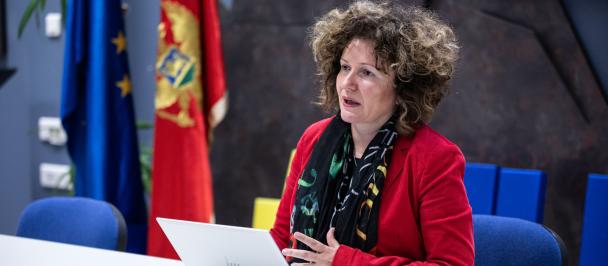CCCPA and the Government of Australia to Cooperate on Preventing Radicalization and Extremism Leading to Terrorism
September 27, 2022

Cairo, Egypt - The Cairo International Center for Conflict Resolution, Peacekeeping and Peacebuilding (CCCPA) hosted a signing ceremony for a first-of-its kind project with the Australian Department of Foreign Affairs and Trade (DFAT) through the United Nations Development Programme (UNDP) titled “Advancing Holistic, Whole-of-Government and Whole-of-Society Approaches in Curbing the Spread of Terrorism in Africa”.
The project document was signed by CCCPA Director General Ambassador Ahmed Abdel-Latif; Ambassador Yasser Abed, Director of International Cooperation for Development, Egyptian Ministry of Foreign Affairs; and Mr. Alessandro Fracassetti, UNDP Resident Representative to Egypt. Attending the ceremony were Ambassador Axel Wabenhorst, Ambassador of Australia to the Arab Republic of Egypt; Ambassador Amr El Rifai, Deputy Assistant Minister for Asian Affairs; and Minister Plenipotentiary Mohamed Fouad, Director of the International Counter-Terrorism Unit, Egyptian Ministry of Foreign Affairs.
The project aims to strengthen and develop African capacities through a tailored range of activities. These activities will be implemented through CCCPA’s program on Preventing Radicalization and Extremism Leading to Terrorism (PRELT), which capacitates religious and community leaders with the requisite knowledge and skills to deconstruct and refute extremist narratives and create positive and alternative ones grounded in peaceful coexistence and moderate religious teachings. Accordingly, it aims to enhance the capacity to address the drivers of extremism through early intervention and community engagement, as well as by challenging terrorist propaganda and recruitment techniques.
Anchored in the belief that responses must be multidimensional, the project seeks to advance whole-of-government and whole-of-society responses in curbing the spread of terrorism. It is premised on the importance of leveraging the role of local communities, especially women community leaders in preventing radicalization and extremism leading to terrorism, as part of advancing comprehensive and holistic approaches in addressing the terrorist threat. The project is a clear reflection of the counterterrorism priorities of the Egyptian and Australian governments.
This timely project comes at a critical juncture as the African continent continues to bear the brunt of protracted violence and terrorism, causing human and economic losses, and hindering its path towards sustainable development. According the 2021 Global Terrorism Index report, Sub-Saharan Africa accounts for almost half of the deaths attributed to terrorism globally, with the Sahel region alone recording an alarming 35% of global deaths from terrorism.
In his remarks, Ambassador Abdel-Latif conveyed CCCPA’s appreciation for the Government of Australia’s cooperation, particularly DFAT and the Office of the Ambassador for Counter-Terrorism. He also highlighted CCCPA’s work in building African capacities in the field of preventing radicalization and extremism conducive to terrorism through its homegrown PRELT program. Launched in 2016, the program targets grassroots level with local communities from various African countries. In this context, Ambassador Abdel-Latif emphasized the importance of investing in prevention efforts and resilience-building, reflecting on the central role of CCCPA's PRELT program in leveraging the pillars of community resilience, such as the social influence exercised by religious and local leaders in their communities.
In his remarks, Ambassador Axel Wabenhorst stated that “Australia is proud to collaborate with CCCPA on this worthy initiative.” He also highlighted that violent extremism continues to pose a significant threat to international peace and security, with African and Arab nations particularly affected. Ambassador Wabenhorst also emphasized that this project, which aims to prevent extremist ideas from forming and spreading in the first place, “attacks the problem at its source.” Concluding his remarks, he expressed Australia’s keenness to follow the project’s progress.
On his part, Ambassador Yasser Abed emphasized the Egyptian Ministry of Foreign Affairs’ keenness to support CCCPA’s cooperation with the various development partners, in particular UNDP. Ambassador Abed further hailed the cooperation signed with the Australian counterpart, emphasizing Egypt’s own successful experience in adopting a holistic and multifaceted approach through its various state institutions in countering terrorism and extremist ideology.
In his remarks, Mr. Alessandro Fracassetti highlighted the strategic partnership between UNDP and CCCPA, indicating that “the signature of this project marks another milestone in UNDP and CCCPA’s joint efforts to build a safer Africa through a comprehensive, multidimensional, and holistic approach, by empowering local communities, including women and youth.” He also noted that the project “caters to the continuation of resilience-building efforts to equip Africa with the necessary means to face the risks and threats that compromise the sustainability of its peace and development.”
CCCPA is an Egyptian public agency, specializing in capacity building, convening, and research in the fields of peace and security in Africa and the Arab region. It has a board of directors presided over by H.E. Sameh Shoukry, Minister of Foreign Affairs of the Arab Republic of Egypt.

 Locations
Locations



